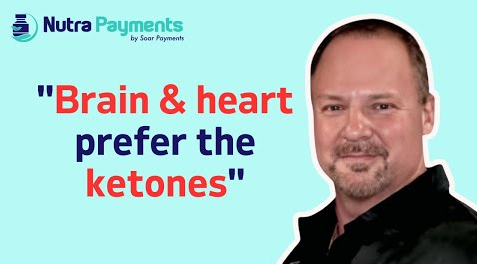How To Know If You Have Adapted Your Metabolism
Although you can use technology to directly measure ketone concentrations, there are not optimal, readily-accessible solutions for measuring how fat-adapted your metabolism is. It’s also not the same exact thing. Don’t get us wrong-fixing your metabolism so it is fat-adapted (metabolically flexible to run off of both your own body fat and carbs) comes with ketones being present-but it is a transient state where repairing your metabolism with keto, fasting, or a keto-centric approach creates a more fixed feature. To know how you’re doing in your metabolic repair process (or if you’re keto-adapted as the mainstream calls it), we’ve created this simple cheat sheet.
Hallmark vs What It Means
1. Lethargy, Inconsistent Energy- Not Adapted: You are likely early on in your adaptation phase if you’re experiencing these symptoms as signs of your body not having a readily-available fuel source it knows how to utilize yet.
2. Cravings, Hanger- Not Adapted: You are likely early on in your adaptation phase OR you are not taking in a sufficient amount of electrolytes.
3. Decreased Physical Output & Exercise Capacity- Not Adapted: Your body likely has not fully acclimated to using multiple fuel sources and thus has limited ability to fuel exercise & training activity.
4. You Feel Bad When You Eat Healthy Carbs- Not Adapted: Believe it or not, bad carb tolerance is a sign your metabolism has issues. Some go without carbs for too long and their systems have issues dealing with them. Being adapted means metabolic flexibility- both carbs and fat can be used for fuel.
5. Extended Focus & Cognitive Function- Adapted: This is a hallmark of a healthy metabolism which has the ability to run off of both fat (body fat & dietary fat), as well as carbs for fuel.
6. Abundant Energy Levels- Adapted: This is a positive sign that your body is readily able to access and metabolize multiple sources of energy into usable energy for your active lifestyle.
7. Feel Good Regardless Even If You Have To Delay or Skip A Meal- Adapted: You are likely well-adapted into being able to access your own body fat for fuel if you can adapt to scheduling curveballs without consequence.
8. You Can Perform Intermittent Fasts Without Issues- Adapted: This is a massively positive sign that your metabolism is working properly and is able to access your own body fat for fuel.
9. You Can Bounce Back From Going Off Your Diet More Easily- Adapted: The longer you are adapted, the easier it becomes to go off of your diet for a meal moment and still feel good, retain a solid body aesthetic, and more-so long as you’re avoiding the worst offender foods.
10. You Can’t Sleep Well- Not Adapted: This can be multi-factorial, but if your sleep hygiene is reasonably in check, then it could be that your body is producing adrenal hormones due to a lack of energy availability and diet balance.
As you can see, there are multiple ways to tell if you’re on the right track with your adaptation process. We hope this guide has served as a simple GPS to see where you’re at.

 ACCOUNT
ACCOUNT
 CART
CART





